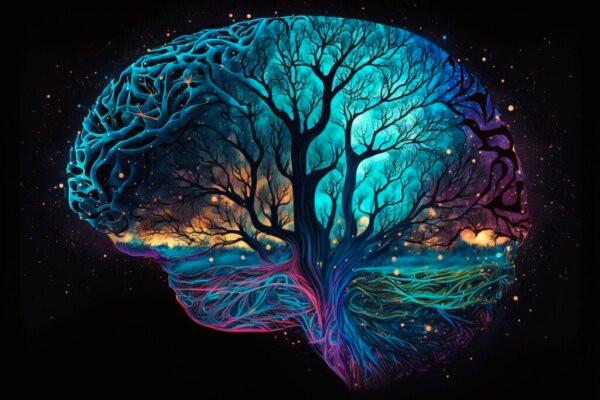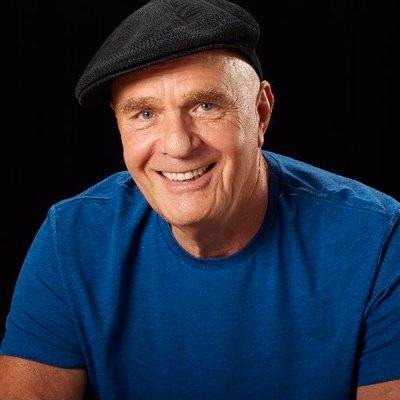How Does the Human Mind Work?
Curated from: exploringyourmind.com
Ideas, facts & insights covering these topics:
9 ideas
·14.4K reads
89
Explore the World's Best Ideas
Join today and uncover 100+ curated journeys from 50+ topics. Unlock access to our mobile app with extensive features.
The mind and the brain aren’t the same thing
The mind is the entity that carries out all our psychological processes . In it flow complex and wonderful motivational, emotional, behavioral, and perceptual systems. It’s important to clarify that the mind and brain aren’t the same entity. The first wouldn’t be able to exist without the second.
The mind emerges the moment a brain reaches sufficient biological sophistication. The future of psychology needs this vision, in which the mind and the brain are understood as connected, but the mind carries out its own functions.
133
2.51K reads
What are the subtle differences? I
- The mind involves consciousness and an infinite number of cognitive processes
- The brain is its biological support, the area of the central nervous system that’s the result of our evolution
- The mind isn’t in a physical and concrete place but is manifested through neurological networks and develops through our experience
- The brain can develop disease and suffer trauma disturbances of the mind can’t be observed. This explains why we label them as “mental disorders"
- The mind modifies the brain. What we think and feel can alter the anatomy and connectivity of the brain
131
1.88K reads
Your conscious mind and your unconscious mind
The human mind works in two ways: Consciously and unconsciously. It’s the unconscious mind that’s the most fascinating, as much of what you do every day is automatically carried out by it. Thinking of the term “unconscious” almost instantly brings the theories of Sigmund Freud to mind.
The truth is that this mental layer brings together all those automatic tasks that we carry out frequently and that don’t require active and conscious information processing.
113
1.58K reads
Functions of the conscious mind
- Self-awareness
- Working memory
- Impulse control
- Emotional self-control
- Imagination and creativity
- Problem resolution
- Logical reasoning and reflection
133
1.74K reads
Functions of the unconscious mind
- Intuition
- Some learning, such as that which is based on the association of stimuli
- Automatic processing of information, such as facial and pattern recognition, as well as received stimuli
- Habit processing and motor skills. An example of this is learning to write or riding a bicycle. Once we practice enough, these activities are carried out automatically and unconsciously
Intuition is a process that our unconscious mind carries out by storing all our experiences. Thanks to it, we make quick decisions at certain times.
133
1.43K reads
The computational theory
The computational model of the mind started from the theory of Noam Chomsky. According to him, there are rules that explain the ease with which we all learn language from a young age. Those rules would start from our natural and automatic ability to recognize symbols.
The mind isn’t seen as a computer but as a system that manipulates complex symbols. It’s comparable to the machine that Alan Turing built at the time.
- A computation is a set of rules that articulate and process each stimulus we receive
- The way the human mind works is similar to a device that constantly creates symbols
121
1.27K reads
The information processing theory
Information processing theory describes the human mind as a computer in which all information is recorded, encoded, and stored.
- According to this theory, the mind is the software, and the brain is the hardware
- According to this perspective, the most decisive phase is contained between the moment we receive a stimulus and the moment we issue a response. The way in which we elaborate and handle each piece of information, sensation, or experience is decisive
119
1.24K reads
The modular theory of mind
One more hypothesis about how the human mind works is that which Steven Pinker exposed in his book and which has a long tradition in psychology. According to the modular theory, the mind is organized into modules, in different specialized structures.
This model draws on evolutionary psychology and says that, like our body, the mind is the result of evolution. Over time, we integrate new collections of mental domains and abilities to better adapt to the environment.
118
1.17K reads
What we think determines what happens to us. Therefore, if we want to change our lives, we need to stretch our minds.
WAYNE DYER
139
1.58K reads
IDEAS CURATED BY
CURATOR'S NOTE
Who directs what we think? Is the mind the same as the brain? These ideas offer all the information you need.
“
Similar ideas
5 ideas
The Structure and Levels of the Mind According to Freud
verywellmind.com
8 ideas
How Does Repression Work in Our Unconscious Mind?
verywellmind.com
7 ideas
Freud's Id, Ego, and Superego Explained
thoughtco.com
Read & Learn
20x Faster
without
deepstash
with
deepstash
with
deepstash
Personalized microlearning
—
100+ Learning Journeys
—
Access to 200,000+ ideas
—
Access to the mobile app
—
Unlimited idea saving
—
—
Unlimited history
—
—
Unlimited listening to ideas
—
—
Downloading & offline access
—
—
Supercharge your mind with one idea per day
Enter your email and spend 1 minute every day to learn something new.
I agree to receive email updates

